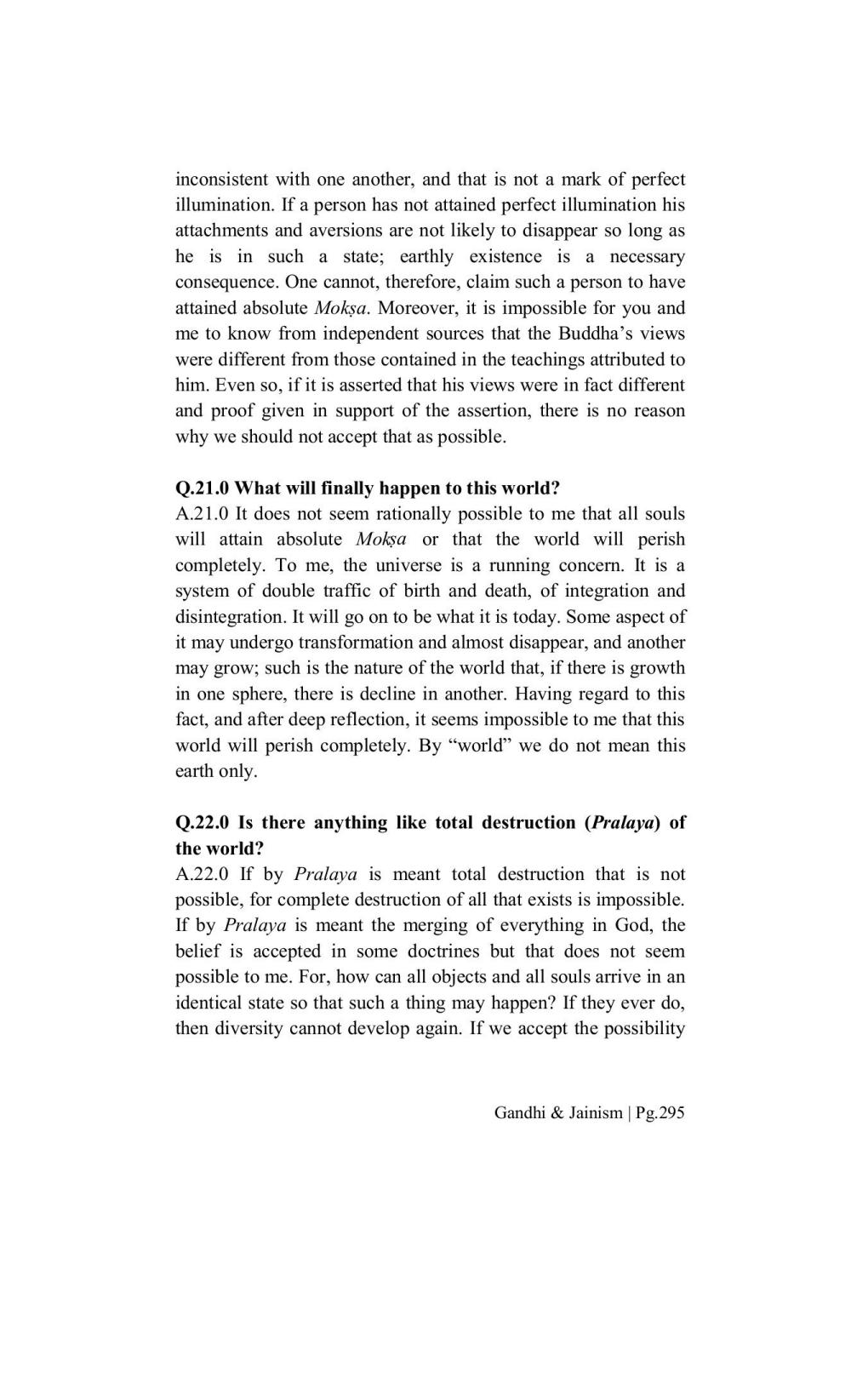________________
inconsistent with one another, and that is not a mark of perfect illumination. If a person has not attained perfect illumination his attachments and aversions are not likely to disappear so long as he is in such a state; earthly existence is a necessary consequence. One cannot, therefore, claim such a person to have attained absolute Mokṣa. Moreover, it is impossible for you and me to know from independent sources that the Buddha's views were different from those contained in the teachings attributed to him. Even so, if it is asserted that his views were in fact different and proof given in support of the assertion, there is no reason why we should not accept that as possible.
Q.21.0 What will finally happen to this world?
A.21.0 It does not seem rationally possible to me that all souls will attain absolute Mokṣa or that the world will perish completely. To me, the universe is a running concern. It is a system of double traffic of birth and death, of integration and disintegration. It will go on to be what it is today. Some aspect of it may undergo transformation and almost disappear, and another may grow; such is the nature of the world that, if there is growth in one sphere, there is decline in another. Having regard to this fact, and after deep reflection, it seems impossible to me that this world will perish completely. By "world" we do not mean this earth only.
Q.22.0 Is there anything like total destruction (Pralaya) of the world?
A.22.0 If by Pralaya is meant total destruction that is not possible, for complete destruction of all that exists is impossible. If by Pralaya is meant the merging of everything in God, the belief is accepted in some doctrines but that does not seem possible to me. For, how can all objects and all souls arrive in an identical state so that such a thing may happen? If they ever do, then diversity cannot develop again. If we accept the possibility
Gandhi & Jainism | Pg.295




